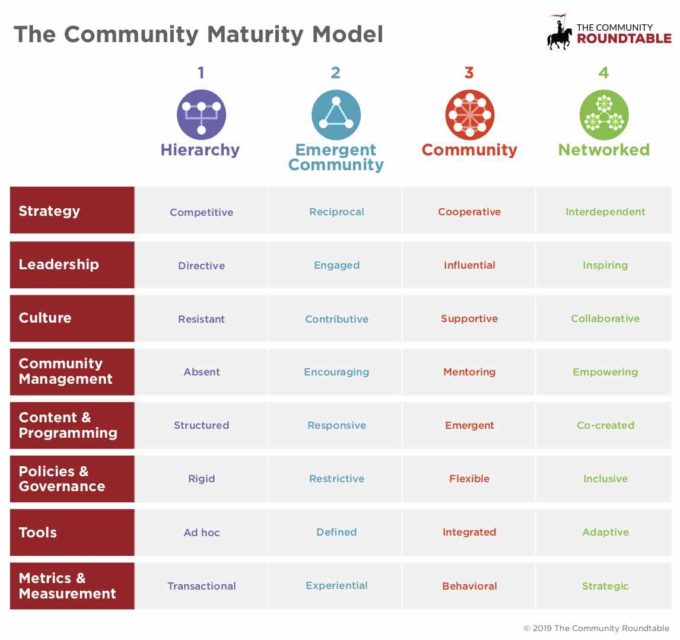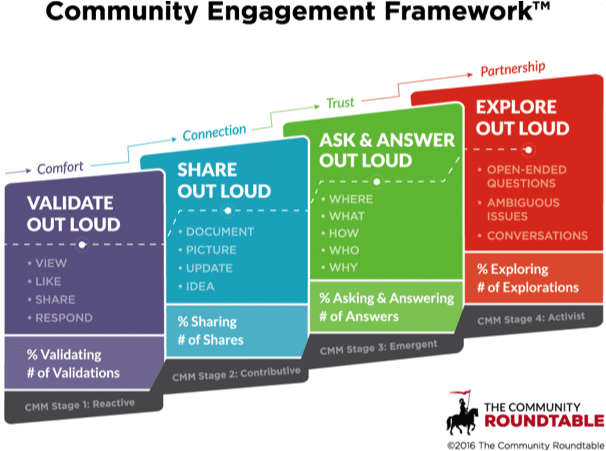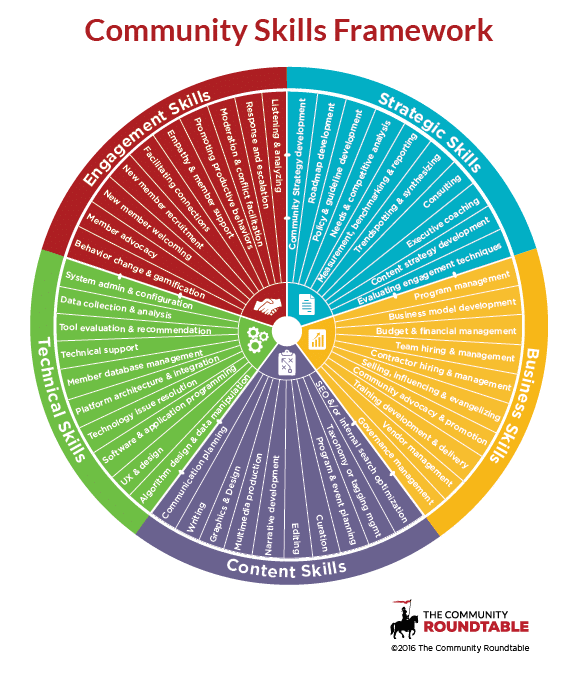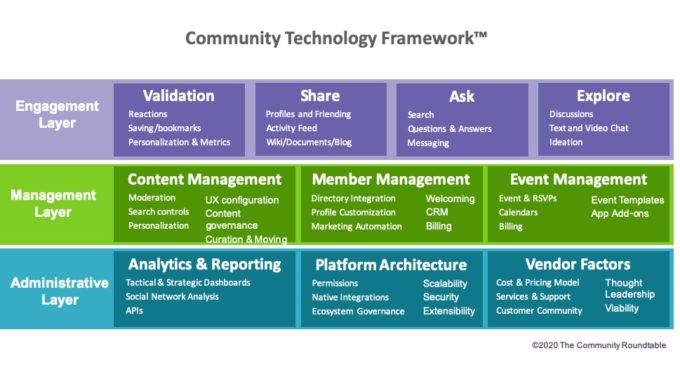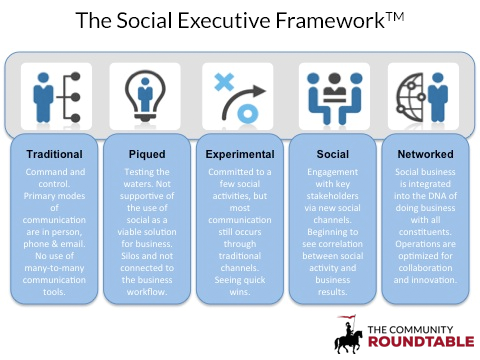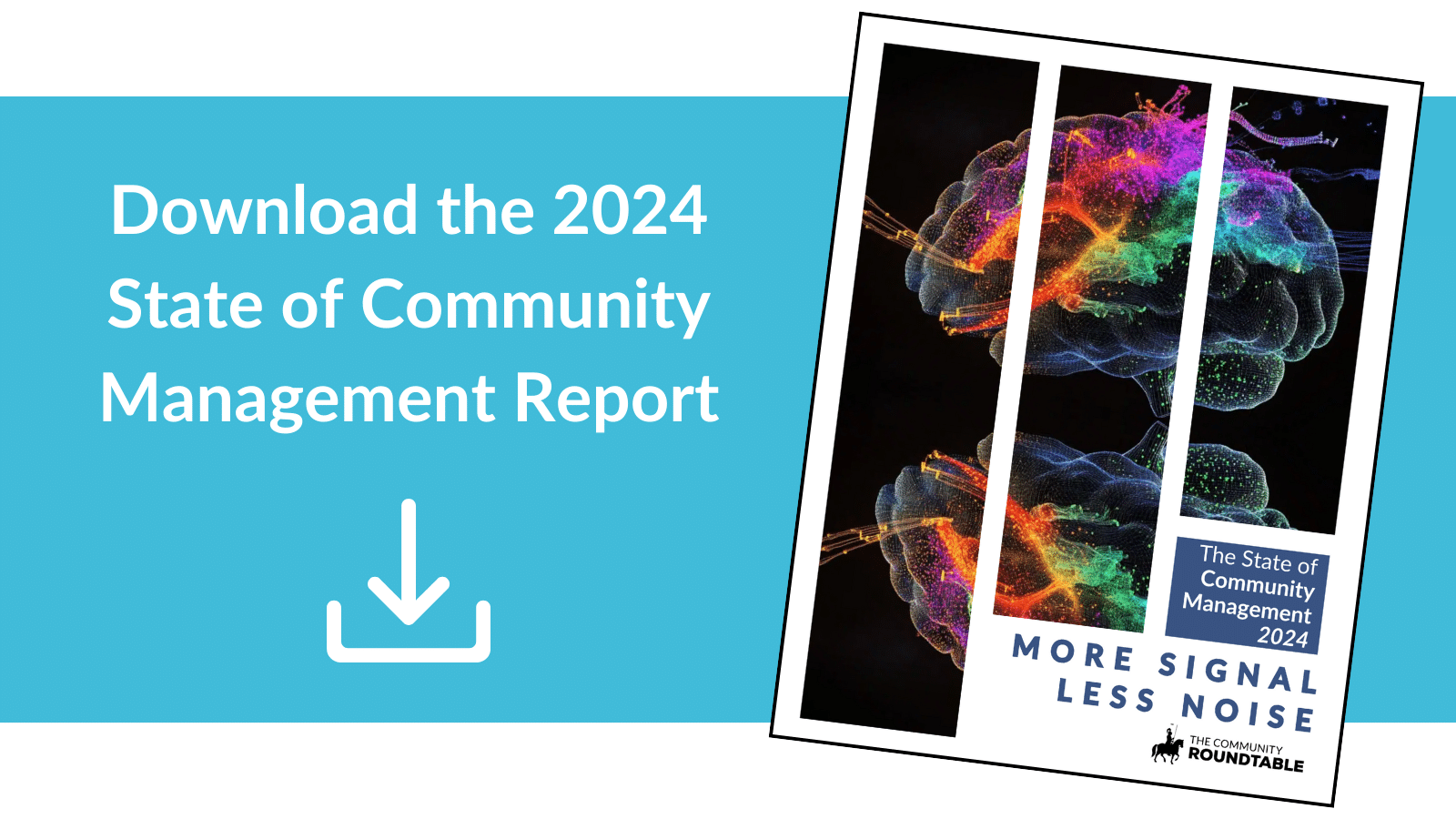Our community management models and frameworks provide structures for understanding, planning, expectation setting, and measurement.
We developed the Community Maturity Model™ (CMM) to help organizations understand, plan for, and assess the performance of community initiatives. Our clients use it both as a community management checklist and as an organizational road map.
At The Community Roundtable, we use it to organize our research, curated content and training services so that our clients can easily connect the dots and use our resources in their strategic planning.
The Community Engagement Framework™ documents engagement behaviors and how they typically change as trust in the community grows.
From "Validate Out Loud" to higher levels of cooperation, support, and collaboration, the framework captures the value and metrics of engagement, providing a method for measuring culture and leadership effectiveness.
The Community Skills Framework™ defines the 50 skills we see as most critical to community success.
Divided into five skill families: Strategy, Engagement, Business, Content and Technical skills, the Community Skills Framework captures the inherent challenges in the community role, while giving community practitioners and program owners a framework for staffing and evaluating community management resources.
The Community Roundtable developed the Community Technology Framework™ in 2019 to acknowledge that technology is what enables community professionals to engage and lead in new ways, and is a critical component of a successful online community program.
Use the Community Technology Framework™ in conjuction with our other community models and frameworks to ensure you are building best-in-class community programs using common language.
The Social Executive Framework™ defines the five stages of executive engagement. From the "traditional" stage, where executives communicate in predominantly hierarchical and broadcast ways, to the "networked" stage, where executives are not only comfortable with contact interactions but are using regular engagement to enhance personal and organizational value.
Rather than assume that executives simply need to "get it," the TSE framework recognizes that executive engagement, like community engagement in general, is driven by a series of small steps that increase comfort with and effective use of communities. Learn more.
